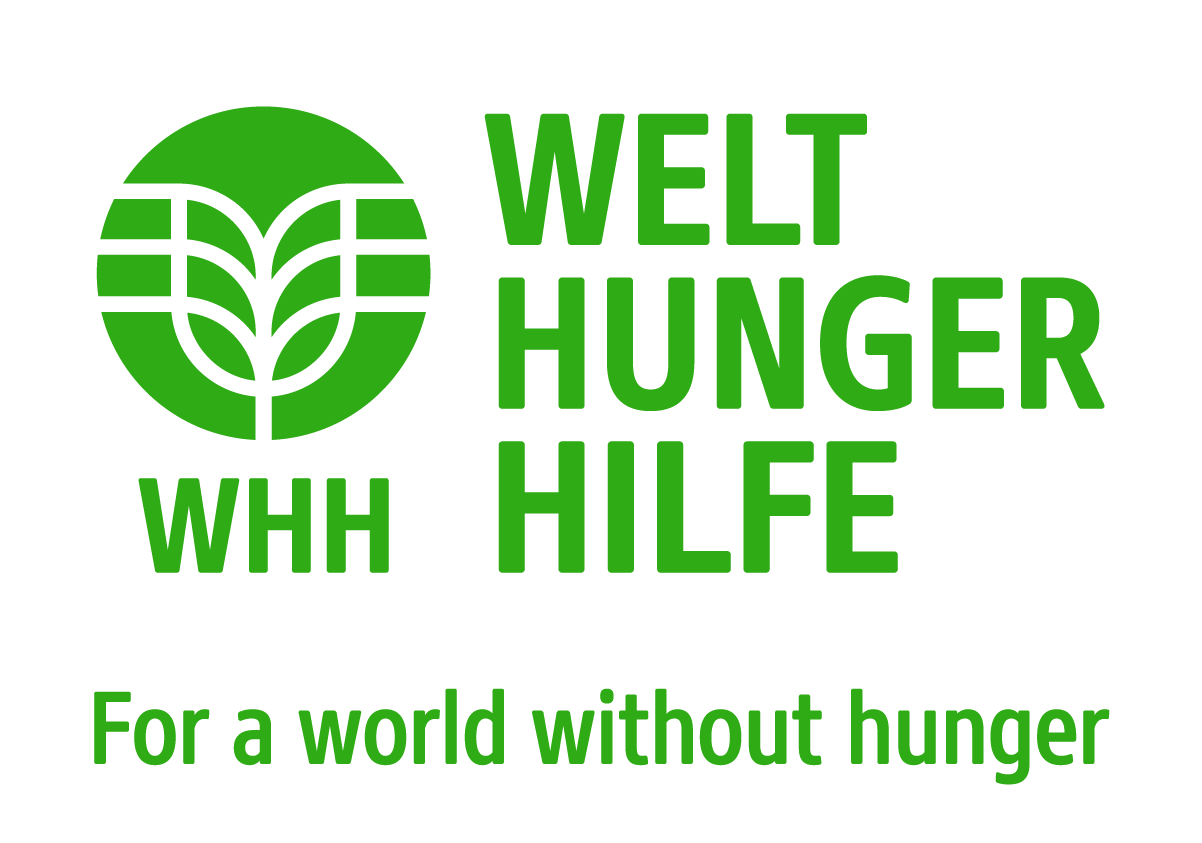Survival Specialists
Since the war broke out more than eight years ago, food prices in Syria have increased dramatically. This has been especially hard on the over six million people displaced within the country. In Syria’s hotly contested north-west, Welthungerhilfe is now supporting families take up small-scale farming to fight hunger and malnutrition.

The two tents are perched on the barren cliff like swallow nests. Sun and wind have rendered the fluttering white tent covers porous. When the rain beats down on the tarpaulins, small puddles form on the ground, and when the sun shines down from the cloudless sky, the heat builds up under the roof—the same one that threatens to buckle under the weight of the snow in the winter. For Um Saloum and her daughters and sons with their families—17 people in all—these tents are home.
Um Saloum has been living here for two summers and two winters. She does not know whether her real home in the Syrian district of Al Dohour is still standing. That region was the object of many battles between opposition groups and regime troops, the latter supporting Bashar al-Assad and his allies. Barrel bombs and mortar shells hit houses, hospitals, schools, and fields. Untold numbers of children, women, and men died. Um Saloum and her family left everything behind and fled southwest to save their lives. When they came across this mountain ledge, they finally halted and erected their two tents. Nobody else wanted to live there.

“We cannot afford a new tent. Life is hard”, says Um Saloum, sitting in front of the tent with her grandchildren. They have rigged up heavy boulders and rough ropes to keep ´the tarpaulin from flying away in the next storm. In one of the two shelters, the extended family sleeps at night on thin carpets and mattresses. Threadbare curtains divide the tent into small partitions. Um Saloum wanted to create some privacy, but it was little more than an act of desperation. In the other tent, the family’s matriarch cooks over an open fire to feed her children, their spouses, and the grandchildren. They have no electricity or running water, and the grandmother stores their meagre supplies in plastic barrels and old buckets.
“We cannot afford a new tent"
Although she sounds tired and exhausted, she is not without hope. From her seat in front of the tent, she can see something that gives her hope and allows the refugees, who had long been dependent on others’ generosity, to regain some dignity: the fertile Al-Rouge plain extending from the foot of the steep cliff. Her sons Khassim, Salloum, and Khalid have been working there since the early morning, planting, weeding, watering, and harvesting the carefully parcelled fields. Just before the sun goes down, they will return home with beans, peppers, tomatoes, or eggplants. They used to have only flatbread and lentils almost every evening, with barely enough food to feel full and barely enough variety to stay healthy. This was when Khassim and Salloum were still in Turkey. Hoping for peace, work, and opportunities, the two young men had joined millions of other Syrians in fleeing from Syria to this neighbouring country. Disillusioned after months in overflowing refugee camps and without a steady job, they returned to war-ravaged Syria. They survived as day labourers, hardly earning enough to feed their families.
This was because many farmers rarely dared to go out on their fields anymore due to the war. On average, food in Syria is eight times as expensive today as before the war, forcing many people—including Um Saloum’s family—to skip meals. Almost two thirds of Syria’s remaining population cannot be certain of having enough to eat, partly because hunger has been frequently employed as a weapon in the war. With funding from the German Federal Foreign Office and in conjunction with local and international aid organisations, Welthungerhilfe began addressing this issue two and a half years ago by supporting especially needy local residents and internally displaced persons living in the war-torn administrative districts of Idlib and Aleppo. This includes Um Saloum and her children, who have joined forces with their neighbours to form a small agricultural cooperative.
They are among the 885 small-scale farming families that received a voucher for EUR 110 to increase their food production. The farmers are investing the money in areas including seeds, fertiliser, pesticides and herbicides, and fuel for irrigation pumps. They have also received agricultural consultations. Even if the yields from the recent good harvests are not yet enough to buy a new tent cover, Um Saloum and her family have been better able to make ends meet.
“We are gradually getting to the point of supporting ourselves”, says Khassim, one of her sons, taking a short break on the field. Then he gets back to work to provide for the 17 people in the tent on the cliff.


